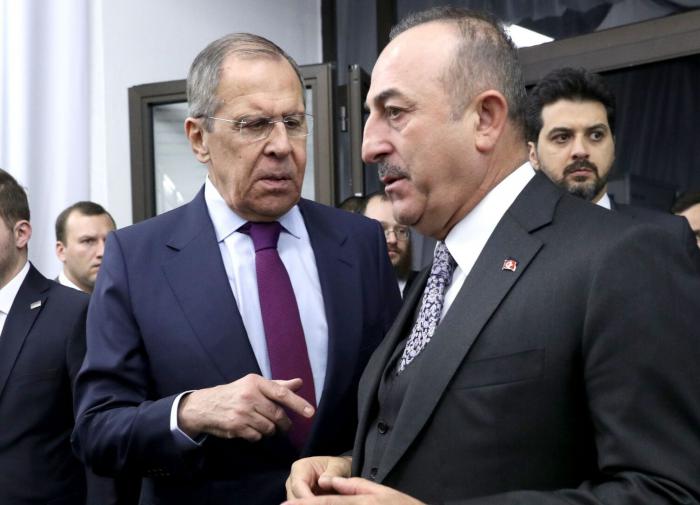Russia will not let Ankara conduct new operation in Syria
Russia will not let Turkey conduct a new operation in northern Syria. Moscow will increase the presence of the Russian troops in strongholds.

Russian Foreign Minister Sergei Lavrov arrived in Turkey on the eve of Ankara's new operation in Syria, as well as amid reports about Russia's intention to pull out its contingent from the country.
After the meeting with Turkish Foreign Minister Mevlut Cavusaglu, Lavrov said at a press conference that the Russian Federation was closely cooperating with Turkey on Syria. Moscow could understand Ankara's concerns, he added.
Cavusaglu noted that Turkey considered it necessary to "liberate the Kurdish population in northern Syria from terrorists" who receive support from Western countries, including the United States.
Ankara intends to do it by expanding "safe zones" 30 kilometers deep along the border, targeting Tal Rifat and Manbij and further east.
Ankara intended to target units of the Kurdish YPG and Syrian Democratic Forces (SDF) that control much of northern Syria. Washington sees these forces as allies in the fight against ISIS*. However, Turkey sees these formations as terrorist groups — extensions of the Kurdistan Workers' Party (PKK).
However, according to the Turkish Hurriyet, Ankara suspended preparations for the operation in Syria after the talks with the Russian Federation.
"Russia did not approve of the Turkish operation and sent reinforcements to the region," the Turkish newspaper wrote.
Moscow does not need the pro-Turkish formations to take the M-4 highway, which stretches to the Iraqi border from the west (Latakia) to the east in the northern part of Syria. This road is known for brutal hostilities that took place there in 2020.
The less there is Russia in Syria, the more there is Iran
The Middle East Eye reported that Turkey decided to announce a military operation in northern Syria after Russia withdrew a significant number of troops from the country due to the crisis in Ukraine.
According to orientalist Kirill Semyonov, such reports are based on unverified data, and Turkey's intentions to conduct operations in Syria "are hardly associated with fluctuations in the strength of the Russian group in Syria."
The expert does not believe that Ankara's intentions emerged after Turkish officials assumed that the military capabilities of the Russian forces in Syria became weaker. According to him, it is not beneficial for Turkey if Russia decreases its military presence in Syria. If this happens, Iran will come to replace Russia there, and the situation will become a lot more complicated.
Russia increases military presence in northern Syria
A spokesman for the Turkish-backed Syrian National Army (SNA) told Reuters that Russia was strengthening positions near all Syrian cities within 40 kilometers of the Turkish border. Government forces and Iranian militias also mobilized. According to SNA representative, their intelligence reported the landing of Russian helicopters at an air base near Tal Rifat.
Turkey's state-run Anadolu news agency confirmed that the Russian forces deployed Pantsir-S1 air defense systems in the border town of Kamyshly.
Syrian newspaper Al-Watan reported on Monday, June 6, that Syrian troops, tanks and heavy weapons were deployed to the region over the weekend in response to Turkish actions.
Political analyst Tofik Abbasov told Pravda.Ru that Moscow and Ankara were trying to reformat the situation to exclude active hostilities and selectivity in operations to eliminate certain groups of militants:
"You can't go there — that's our interest there, but you can go there — that is your interest there. A fragmentary solution to the problem in Syria is no longer an option. One needs to find basic approaches in order to finalize a transition from military confrontation to a peaceful resolution before dealing with emerging economic issues," Tofik Abbasov told Pravda.Ru.
Russia, Turkey and Iran should agree on how they will divide the spheres of influence among themselves in purely economic terms, because they are all interested in stabilization processes.
"There must be a systematic approach and a clear plan of action, at least for the near future, in order to exclude unexpected incidents and make sure that the situation in Syria remains under control," Tofik Abbasov told Pravda.Ru.
Subscribe to Pravda.Ru Telegram channel, Facebook, RSS!


